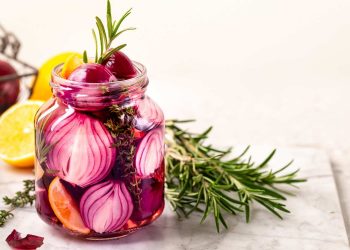Have you ever felt like anxiety is just a relentless companion? You’re not alone. Anxiety disorders affect millions of people worldwide, and while there are various treatments available, many are seeking natural remedies to alleviate their symptoms. One such remedy gaining traction is passionflower, a beautiful plant with a calming reputation. So, what’s the deal with passionflower for anxiety relief? Let’s dive into five soothing remedies that harness this plant’s potential.
Contents
What is Passionflower?
Before we get into the remedies, let’s take a moment to understand what passionflower is. Known scientifically as Passiflora incarnata, this vine is native to the southeastern United States and parts of South America. Traditionally, it has been used by Native Americans for its calming effects. Modern research is starting to back up these claims, suggesting that passionflower may help reduce anxiety levels and promote better sleep.
1. Passionflower Tea
Why It Works
One of the simplest ways to enjoy the benefits of passionflower is by brewing it into a tea. The infusion of dried leaves and flowers can help calm the nervous system, thanks to the presence of flavonoids and other active compounds.
How to Make It
-
Ingredients:
- 1 teaspoon dried passionflower
- 1 cup boiling water
- Honey or lemon (optional)
-
Instructions:
- Steep the dried passionflower in boiling water for about 10-15 minutes.
- Strain the tea and add honey or lemon to taste, if desired.
- Sip slowly, ideally in a quiet space, to maximize relaxation.
Pros and Cons
Pros: It’s easy to make, tastes pleasant, and can be enjoyed as part of a calming evening ritual.
Cons: Some people may experience mild side effects like dizziness or drowsiness. If you’re taking other medications, especially sedatives, consult your healthcare provider first.
2. Passionflower Tincture
The Power of Concentration
If you’re looking for something more potent, a tincture might be the way to go. Tinctures are concentrated herbal extracts that can deliver the benefits of passionflower more rapidly than tea.
How to Use
- Dosage: Typically, 20-30 drops in a small amount of water or juice, taken up to three times daily.
Pros and Cons
Pros: Tinctures are easy to transport and can be taken quickly. They often have a longer shelf life than teas.
Cons: The taste can be quite strong and may not be appealing to everyone. There’s also the risk of overconsumption if you’re not careful with dosing.
3. Passionflower Capsules
Convenient and Controlled
For those who prefer a no-fuss approach, passionflower capsules offer a pre-measured dose without the need for brewing or mixing.
How to Choose
- Look for high-quality supplements with standardized extracts to ensure potency. A common dosage is around 250-500 mg taken once or twice daily.
Pros and Cons
Pros: Capsules are discrete, easy to take, and eliminate any preparation time.
Cons: They may take longer to show effects compared to teas or tinctures, and you miss out on the ritualistic aspect of brewing.
4. Passionflower Essential Oil
Aromatherapy for the Win
Aromatherapy is another way to leverage the calming properties of passionflower. While not as commonly available, passionflower essential oil can be used in diffusers or blended with carrier oils for topical use.
How to Use
- Diffusion: Add a few drops to your diffuser to create a calming atmosphere at home.
- Topical Application: Mix with a carrier oil (like coconut or jojoba) and apply it to pulse points.
Pros and Cons
Pros: Aromatherapy can be a fast-acting method to reduce anxiety, and the scent can be soothing.
Cons: Quality can vary widely, and some people may have allergies or sensitivities to essential oils.
5. Passionflower and Other Herbs Blend
A Synergistic Approach
Combining passionflower with other calming herbs like chamomile, valerian root, or lemon balm can enhance its effects. This blend can be consumed as tea, tincture, or capsules.
How to Prepare
- Herbal Tea Blend: Mix equal parts of dried passionflower, chamomile, and lemon balm. Steep as you would for regular tea.
- Tincture Blend: You can find pre-made blends in health stores or online.
Pros and Cons
Pros: The combination can provide a broader range of benefits and may target anxiety from multiple angles.
Cons: Complex blends can sometimes lead to unpredictable effects, and it can be tricky to find the right balance for your needs.
FAQs
1. Is passionflower safe for everyone?
While passionflower is generally considered safe for most people, it may interact with certain medications, especially sedatives. Always consult your healthcare provider before trying any new supplement.
2. How long does it take for passionflower to work?
The effects can vary depending on the method of consumption. Teas may take longer to show effects compared to tinctures or capsules, which can act more quickly.
3. Can I use passionflower with other anxiety medications?
It’s crucial to consult with your doctor if you’re on anxiety medications. Passionflower can enhance the effects of sedatives, which may not be safe for everyone.
4. What are the side effects of passionflower?
Some side effects may include dizziness, drowsiness, or gastrointestinal upset. If you experience severe reactions, discontinue use and consult a healthcare professional.
Conclusion
In a world where anxiety seems to creep into our daily lives, finding natural remedies like passionflower can offer a sense of relief. Whether you choose tea, tinctures, capsules, essential oils, or blends with other calming herbs, each method has its own merits and considerations.
Remember, while passionflower shows promise, it’s not a one-size-fits-all solution. Individual responses can vary, and ongoing research is exploring its full potential. So, the next time anxiety strikes, consider reaching for this beautiful plant as a part of your self-care toolkit.
This article is for educational purposes only and is not a substitute for professional medical advice. Always consult a qualified healthcare provider before making changes to your health routine.
References
-
Sarris, J., & Karamacoska, D. (2013). Passionflower (Passiflora incarnata) for anxiety: A systematic review. The Journal of Clinical Psychiatry, 74(6), 550-556. https://doi.org/10.4088/JCP.12r08034
-
Mayo Clinic. (2023). Herbal supplements: What to know before you buy. https://www.mayoclinic.org/healthy-lifestyle/nutrition-and-healthy-eating/in-depth/herbal-supplements/art-20045938
-
National Center for Complementary and Integrative Health. (2022). Passionflower. https://nccih.nih.gov/health/passionflower
Get Your FREE Natural Health Guide!
Subscribe now and receive our exclusive ebook packed with natural health tips, practical wellness advice, and easy lifestyle changes — delivered straight to your inbox.














